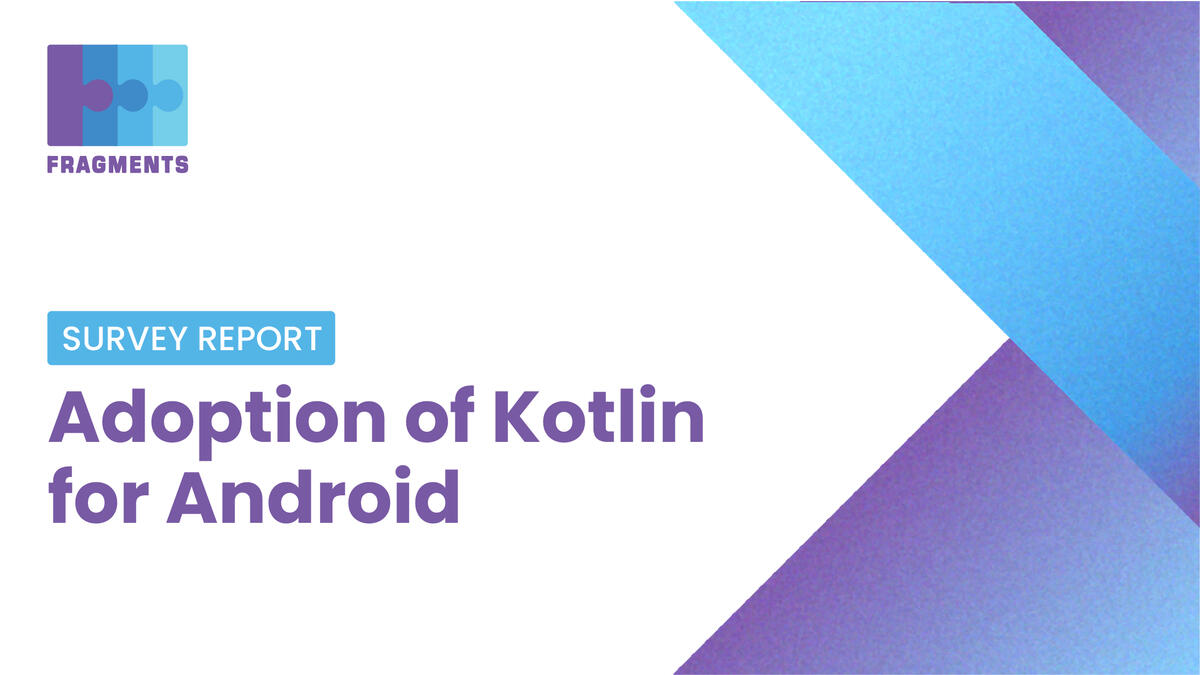
Kotlin will displace Java in the Android ecosystem.
Survey report on the adoption of Kotlin for Android.
Fragments conducted an online survey with Android developers and teams about Kotlin adoption between March and April 2021. The survey aimed at answering two questions:
Survey respondents were primarily drawn from Android engineers and Android teams in startups, mid-sized organizations and enterprises.
Survey results show that:
Kotlin’s adoption will increase in 2-3 years, with the likelihood that the next generation of entrants in Android software development will be Kotlin native. This will displace Java’s dominance as a programming language for building Android apps.
The results also reinforce that Kotlin is primarily used for UI development. The language’s features and ability for backend engineering is still under-utilized, at least among developers and teams who mainly build Android apps (since the survey respondents are from this demographic).
More importantly, the survey reveals that engineering managers are concerned about moving large Java codebases to Kotlin because of the concern that they will not be able to hire Kotlin programmers and ramp up their teams.
Despite the growing demand for Kotlin and the backing of big tech firms such as Google/Android, there still exist skill gaps in the adoption of Kotlin in India. Kotlin has far-fetched benefits beyond Android as well mainly,
Organizations appear to be reticent in moving their codebase to Kotlin, especially when the codebases are large. This slow move is compounded by the apprehension that hiring Kotlin programmers will be difficult and that upskilling entire teams will be difficult. The current skill gaps likely exist because most developers depend on learning the language by themselves, without access to formal training, and without community forums where experiential case studies about Kotlin can be shared freely.
We conclude that for organizations to make better progress towards adoption of Kotlin, they have to invest in training and upskilling their employees because Kotlin will be the future for Android development.
Madhusudhan Sambojhu is founding partner and engineering lead at able.do.
Anand Venkatnarayanan has worked as a cybersecurity engineer for two decades. He is currently editor at Privacy Mode programme and non-executive director at Hasgeek.
Bhavani Seetharaman is Research Associate at Hasgeek.
Zainab Bawa is co-founder, director and Chief Operating Officer (COO) at Hasgeek.
Bhavani Seetharaman and Zainab Bawa have written this report. Madhusudhan Sambojhu actively reviewed the report and helped in nuancing the findings and conclusions.
Anish TP illustrated the report.
We would like to thank:
09 Sep 2021
09 Sep 2021
09 Sep 2021
09 Sep 2021
09 Sep 2021